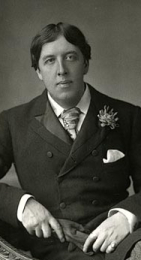Nicht lieferbar

The Picture of Dorian Gray
Versandkostenfrei!
Nicht lieferbar
Dorian Gray is the subject of a full-length portrait in oil by Basil Hallward, an artist infatuated by Dorian's beauty. Through Basil, Dorian meets Lord Henry Wotton, and he soon is enthralled by the aristocrat's hedonistic worldview: that beauty and sensual fulfilment are the only things worth pursuing in life. Suddenly understanding that his beauty will fade, Dorian expresses the desire to sell his soul, to ensure that the picture, rather than he, will age and fade. The wish is granted, and Dorian pursues a libertine life of varied and amoral experiences, while staying young and beautiful; a...
Dorian Gray is the subject of a full-length portrait in oil by Basil Hallward, an artist infatuated by Dorian's beauty. Through Basil, Dorian meets Lord Henry Wotton, and he soon is enthralled by the aristocrat's hedonistic worldview: that beauty and sensual fulfilment are the only things worth pursuing in life. Suddenly understanding that his beauty will fade, Dorian expresses the desire to sell his soul, to ensure that the picture, rather than he, will age and fade. The wish is granted, and Dorian pursues a libertine life of varied and amoral experiences, while staying young and beautiful; all the while his portrait ages and records every sin. Of The Picture of Dorian Gray, Oscar Wilde modestly observes "an idea that is as old as the history of literature but to which I have given a new form" and "Basil Hallward is what I think I am: Lord Henry is what the world thinks of me: Dorian is what I would like to be—in other ages, perhaps." His literary creation, rich with literary allusions and philosophical questions, appalled his first readers, but soon spawned a continuous series of screen and stage adaptions.




